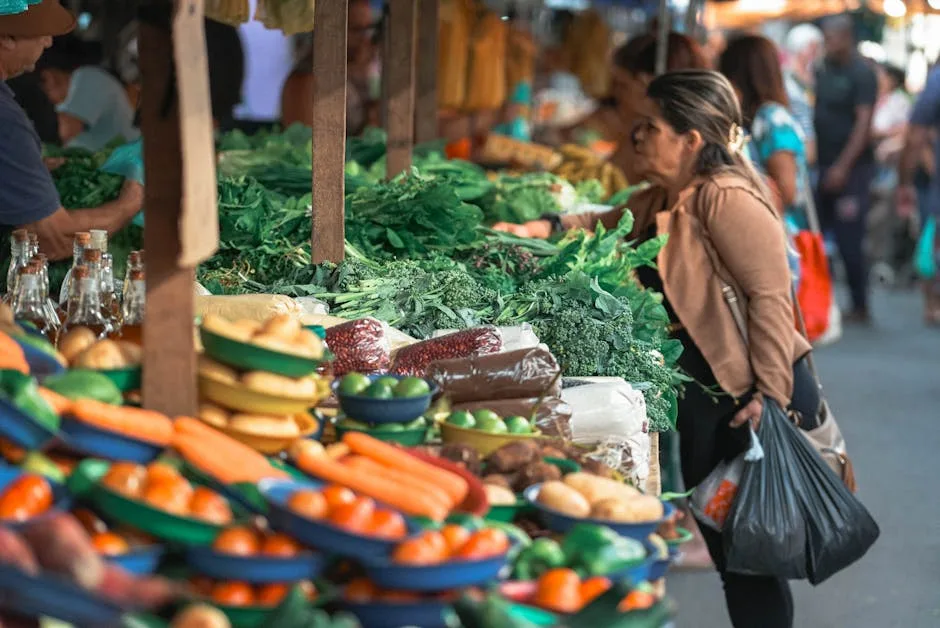For those planning to travel to Brazil, acquiring a basic understanding of the Portuguese language can significantly enhance the overall experience. While many Brazilians in urban areas may speak English, particularly in tourist destinations, knowing some essential Portuguese phrases can create connections with locals and enrich interactions. The language serves not only as a means of communication but also as a gateway to cultural appreciation, allowing travelers to engage in genuine exchanges that go beyond surface-level interactions.
One of the most notable benefits of learning Portuguese is the ability to navigate everyday situations more effectively. Whether it’s ordering food at a restaurant, asking for directions, or bargaining in local markets, familiarity with the language can ease potential frustrations that stem from language barriers. Moreover, using even a few Portuguese words or phrases demonstrates respect and appreciation for the local culture, often resulting in warmer responses from residents and fostering a sense of community.
Additionally, the act of learning Portuguese can be a rewarding endeavor in itself. It not only prepares travelers for their journey but also enriches their understanding of Brazil’s history and customs. By grasping the basics of the language, visitors may discover local idioms and expressions that provide deeper insights into the Brazilian way of life, creating memorable experiences that can last long after the trip has ended.
As travelers embark on this linguistic journey, they should keep in mind that while fluency is not necessary, mastering a handful of key phrases can make a significant difference. Ultimately, investing time to learn Portuguese can lead to more meaningful interactions and a fulfilling experience in this vibrant country.
Must-Know Portuguese Phrases
When traveling to Brazil, familiarizing yourself with some essential Portuguese phrases can significantly enhance your experience. Engaging with locals becomes much easier when you can communicate basic needs and polite expressions. Here are several key phrases to remember:
1. Olá (Oh-lah) – Hello: This simple greeting is a great way to start any conversation. It is universally recognized and serves as a friendly acknowledgment of others.
2. Por favor (Poor fah-vor) – Please: A vital part of any polite interaction, using “por favor” when making requests shows respect and consideration.
3. Obrigado/a (Oh-bree-gah-doh/dah) – Thank you: Expressing gratitude is important in any culture. “Obrigado” is used by males, while “obrigada” is used by females. This phrase will help in expressing your appreciation towards those who assist you.
4. Desculpe (Deh-scool-peh) – Excuse me/Sorry: Whether you need to ask someone to move aside or if you inadvertently bump into someone, saying “desculpe” shows politeness and acknowledgement of the interaction.
5. Quanto custa? (Kwahn-toh koos-tah?) – How much does it cost?: This phrase is essential when shopping or dining out, allowing you to inquire about prices without difficulty.
6. Eu não entendo (Ay-ooh now en-ten-doh) – I do not understand: If you find yourself in a conversation that you cannot follow, this phrase will be crucial. It alerts the speaker that you require assistance with language comprehension.
7. Onde fica? (On-jee fee-kah?) – Where is it located?: This question helps when seeking directions, making navigating through unfamiliar areas more manageable.
These phrases serve as foundational tools for initiating conversations and can greatly enhance your interactions with local Brazilian culture. Mastering these key phrases will not only facilitate smoother communication but also enrich your travel experience.
Dealing with Language Barriers
Traveling to Brazil offers an enriching experience, but limited language proficiency can pose challenges. Many travelers may encounter situations where Portuguese language skills are lacking, leading to potential misunderstandings. However, there are several strategies that can facilitate effective communication even when fluency is absent.
One effective method is the use of gestures and facial expressions. Non-verbal communication can bridge the gap when words fail. Simple hand signals, nodding, or even pointing to objects can convey messages without the need for proficiency in Portuguese. For instance, if you are lost, gesturing to a map or using hand signals to indicate directions can help others understand your needs. Furthermore, maintaining eye contact and showing an open posture can enhance your communicative efforts, making interactions more engaging.
In addition to gestures, using basic vocabulary can be highly beneficial. Memorizing a few essential Portuguese phrases—such as greetings, numbers, and common questions—empowers travelers to engage in simple conversations. Even if pronunciation is not perfect, many locals appreciate the effort made to communicate in their language. Simple phrases like “Obrigado” (Thank you) or “Por favor” (Please) can make a significant difference in social interactions.
Another critical aspect of overcoming language barriers is addressing the psychological factors that contribute to fear of mistakes. Travelers often avoid speaking out of an apprehension to make errors. However, it’s essential to recognize that making mistakes is a natural part of the learning process. Approaching conversations with a positive mindset and a willingness to learn can alleviate anxiety, empowering travelers to engage more confidently. Remember, most locals are patient and understanding, making it easier to connect despite communication barriers.
With these strategies, navigating Brazil can be a more enjoyable experience, allowing travelers to immerse themselves in the culture without the limitations of language proficiency.
Useful Apps and Tools for Language Support
When traveling to Brazil, effective communication can significantly enhance your experience. Fortunately, numerous mobile applications and tools have been developed to assist travelers in overcoming language barriers. Among the most popular options is Google Translate, which offers a free and robust translation service. This app provides features such as text translation, voice recognition, and the ability to upload images for instant translation of written words. Additionally, the app works offline, making it convenient for travelers without a stable internet connection.
An alternative to Google Translate is the Microsoft Translator app. It similarly offers translation of text and voice, but with the added functionality of real-time conversation translation, which can be particularly useful during interactions with locals. Both applications support Brazilian Portuguese, ensuring that the translations are relevant and accurate. Users often appreciate the easy-to-navigate interface and quick response times of these tools.
For those who prefer a more structured approach to learning essential phrases, Phrasebook apps such as “Bravolol” or “uTalk” can be beneficial. These apps typically offer categorized phrases, audio pronunciations, and quizzes to test comprehension. They often require a one-time purchase or subscription fee, which can be considered a worthwhile investment for frequent travelers or those planning extended stays in Brazil.
Furthermore, utilizing language learning platforms like Duolingo can be a great way to build foundational Portuguese skills before your trip. While primarily focused on teaching the language, the app includes practical phrases that can help during your travels. In addition to mobile applications, offline resources such as pocket phrasebooks can also serve as handy reference tools when internet connectivity is limited.
In conclusion, equipping yourself with language support applications and tools can significantly enhance your ability to communicate effectively while traveling in Brazil. Whether you opt for translation apps or dedicated phrasebooks, having these resources at your disposal will undoubtedly enrich your travel experience.
Understanding Cultural Context and Body Language
Effective communication in Brazil extends beyond mere words; it encapsulates a rich tapestry of cultural context and body language. The significance of these elements cannot be overstated, as they play a critical role in conveying messages and emotions during interactions. In Brazilian culture, non-verbal cues often speak louder than spoken words, informing the listener about the speaker’s feelings, intentions, and even social status.
One prominent aspect of Brazilian body language is the frequent use of gestures. Brazilians are known for their expressiveness, often using hand movements to emphasize points or replace words entirely. For instance, a simple nod may indicate agreement, while raising an eyebrow can express skepticism or surprise. Additionally, maintaining eye contact signifies sincerity and engagement, while a lack thereof might suggest disinterest or avoidance. Understanding these nuances can significantly enhance communication, allowing travelers to forge deeper connections with locals.
Apart from gestures, cultural customs also play a pivotal role during interactions. Greetings in Brazil often involve warm, friendly exchanges, with hugs and cheek kisses being commonplace, particularly among acquaintances. It is essential to note that these practices may vary by region, making it beneficial for travelers to observe and adapt to their surroundings. Respecting personal space is equally important; while Brazilians are typically open and sociable, they also value comfort in physical proximity.
Being aware of these cultural norms and body language helps bridge the gap between language barriers. By recognizing and adopting local customs, travelers can foster more meaningful engagements with Brazilian locals, resulting in a richer and more enjoyable experience.
Specific Phrases by Brazilian City
Brazil is a vast country characterized by diverse cultures and languages, which reflects significantly in the regional variations of Portuguese spoken across its cities. Each locale has its own unique phrases and dialects, shaped by local customs, history, and influences from indigenous languages, African heritage, and immigrant communities. This section will explore some notable phrases that travelers may encounter in major cities such as Rio de Janeiro, São Paulo, and Salvador, highlighting the linguistic richness found within Brazil.
In Rio de Janeiro, the vibrant slang known as “carioca” prevails. For instance, the phrase “de boa” is often used meaning “cool” or “chill.” Visitors might also hear “beleza,” which translates to “beauty” but serves as a colloquial affirmation akin to “okay” or “sounds good.” Understanding these local variations can enhance communication and foster a deeper connection with the carioca culture.
São Paulo, Brazil’s largest city, exhibits a different flavor of language, marked by a more formal tone compared to the laid-back carioca. The phrase “tô nem aí,” meaning “I don’t care,” is commonly used among locals. Moreover, the customer service experience is often formal; therefore, using “senhor” or “senhora” (sir or madam) shows respect and may lead to a more positive interaction.
Salvador, known for its rich African influences, has unique expressions such as “e aí,” which is a friendly greeting equivalent to “what’s up?” Moreover, the local cuisine might influence conversations with phrases related to traditional dishes, such as “acarajé,” reflecting the city’s cultural pride in its culinary offerings.
In summary, understanding the specific phrases tied to these prominent cities not only enhances travelers’ experiences but also demonstrates respect for the local culture, allowing for more meaningful exchanges with Brazilian residents.
The English vs. Portuguese Landscape in Brazil
Brazil presents a unique linguistic landscape, where the prevalence of English speakers varies significantly across different regions and demographics. Although Portuguese remains the official language and is predominantly spoken, English has gradually become more accessible, especially in urban settings and tourist hotspots. According to recent statistics, around 5% of the Brazilian population can communicate effectively in English, with a higher concentration found in major cities such as São Paulo, Rio de Janeiro, and Brasília.
In urban areas, English proficiency is often tied to education and socio-economic status. Individuals who have attended higher education institutions or work in international companies are more likely to speak English. Additionally, younger demographics, particularly those in their late teens and early twenties, demonstrate a greater inclination towards learning English, influenced by the global nature of media and online content. Consequently, at tourist attractions, such as popular landmarks, museums, and hotels, it is common to find staff who can converse in English, facilitating a more seamless experience for non-Portuguese speakers.
However, outside major urban centers and touristic regions, the prevalence of English diminishes considerably. In rural areas or less frequented tourist destinations, travelers may encounter challenges due to limited English knowledge among locals. This potential language barrier emphasizes the importance for visitors to familiarize themselves with essential Portuguese phrases to enhance communication. Understanding the linguistic divide in Brazil can help travelers adapt to different environments, ensuring a more enriching cultural experience. Ultimately, while English is certainly present in Brazil, a foundational grasp of Portuguese will better equip travelers to navigate both urban and rural landscapes.
Real-life Scenarios: Phrases for Everyday Situations
Traveling in Brazil can be an exhilarating experience, enriched by the country’s vibrant culture and language. Familiarizing oneself with essential Portuguese phrases can significantly enhance interactions in various everyday situations. Here, we discuss practical scenarios and the corresponding phrases that can be employed.
When dining at a restaurant, it is crucial to communicate effectively with the staff. A useful phrase to remember is “Eu gostaria de fazer um pedido,” meaning “I would like to place an order.” If you need to ask for the menu, simply say “Você pode me trazer o cardápio, por favor?,” which translates to “Can you bring me the menu, please?” Additionally, after enjoying your meal, expressing gratitude with “Obrigado(a)” is a polite way to acknowledge the service.
While shopping, Brazilian markets and stores bustle with energy. When inquiring about a product, a helpful phrase is “Quanto custa isso?,” which means “How much does this cost?” Should you desire to try on clothing, you may say “Posso experimentar esse tamanho?,” meaning “Can I try on this size?” This not only streamlines your shopping experience but also facilitates communication with local vendors.
Asking for directions is another essential aspect of navigating Brazil. If you find yourself lost, approach someone and ask “Onde fica a estação de metrô mais próxima?,” which means “Where is the nearest subway station?” People are often willing to help, and understanding this phrase enables travelers to locate desired destinations efficiently.
By incorporating these practical phrases into your travels, you can navigate daily interactions with confidence, enhancing your overall experience in Brazil. Being equipped with these basic terms fosters a genuine connection with locals and allows for more enjoyable and immersive travel adventures.
Embracing the Language Learning Journey
Embarking on a journey to Brazil offers not just an escape from everyday life, but also an invitation to engage with a rich tapestry of culture, history, and language. Understanding Portuguese, even at a basic level, can significantly enhance your travel experience. The ability to communicate with locals creates a bridge that fosters connections, making your time in Brazil more fulfilling and immersive.
Learning Portuguese may initially seem daunting; however, it is important to remember that the process of acquiring a new language is a significant step towards personal growth. Each word and phrase mastered brings a sense of accomplishment, while allowing travelers to navigate their surroundings with greater confidence. The effort required to learn even a few essential phrases pays dividends, as it empowers you to partake in authentic experiences, from enjoying traditional foods to engaging in meaningful conversations with the locals.
Furthermore, embracing the challenge of learning Portuguese fosters an appreciation for the cultural nuances that characterize Brazil. Each exchange becomes an opportunity to deepen your understanding of the local customs, traditions, and societal norms. By making an effort to converse in Portuguese, travelers not only enhance their personal experiences but also show respect for the culture, which can be reciprocated in warm hospitality and richer interactions.
In conclusion, while the path to learning Portuguese may seem overwhelming for some, it is a rewarding endeavor that enriches every aspect of your travel experience. As you take the plunge into the language, you may discover new dimensions of Brazil and develop meaningful relationships that last well beyond your trip. Embrace this opportunity to grow, connect, and make the most of your travels in this beautiful country.





